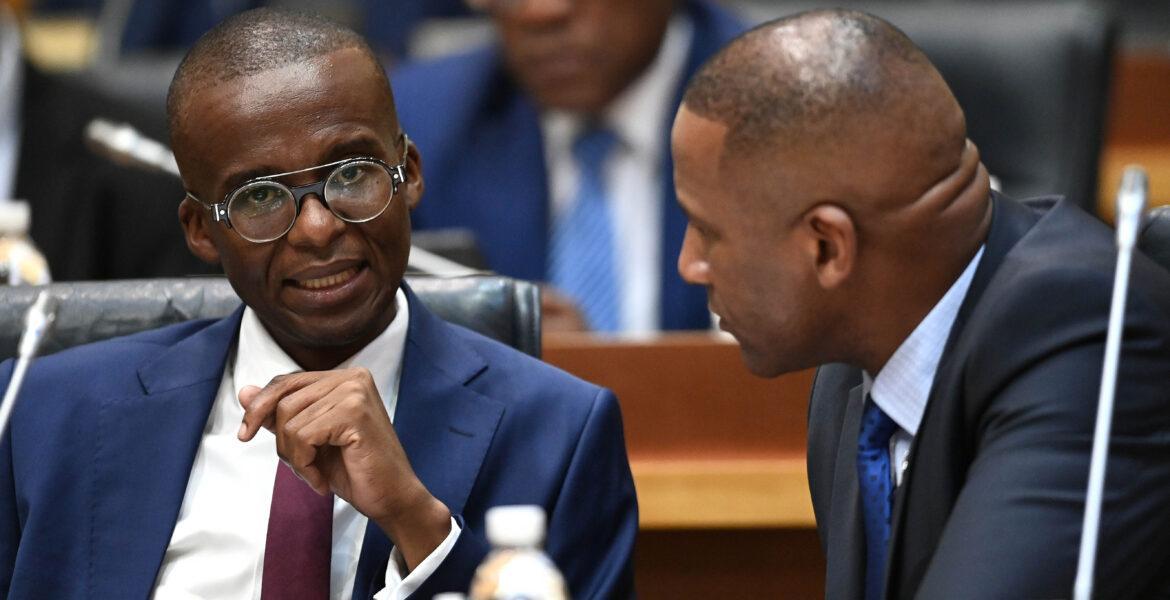Africa-Press – Botswana. The Value Added Tax (Amendment) Bill, 2025 (Bill No. 22 of 2025) presented to Parliament under a certificate of urgency is a strategic fiscal intervention aimed at shoring up government revenue amid tightening economic conditions.
Presenting the Bill on Tuesday in Parliament, the Minister of Finance, Mr Ndaba Gaolathe said the Value Added Tax (VAT) played a critical role in sustaining the domestic economy, especially as Botswana continued to face mounting fiscal pressures.
“Given the current fiscal state of affairs, it is necessary to go beyond conventional revenue sources. We are now looking at new ways to optimise tax collection and broaden the tax base,” he said.
The minister emphasised that the current VAT system, which was built around a traditional economy centred on physical goods and local services, had become outdated, saying it did not adequately capture the dynamics of the digital economy or remote service providers.
Mr Gaolathe stated that the amendment Bill has two primary objectives; to introduce VAT on remote services, including digital trade and cross-border online transactions and mandate electronic invoicing (e-invoicing) as a compliance and efficiency measure.
“During the 2025/2026 Budget Speech, I signaled the government’s intent to tax digital trade and implement electronic invoicing, this is crucial in closing revenue leakages and aligning with international best practices,” he said.
Mr Gaolathe described the new legislation as a stop-gap revenue mobilisation measure, to bridge the gap while a more comprehensive overhaul of Botswana’s tax laws was finalised.
He revealed that the government was currently conducting a full review of the Income Tax Act and the VAT Act, with a view to harmonising procedural and administrative provisions under a forthcoming Tax Administration Act.
“This legislative review is at an advanced stage and we expect to present all three Bills, the revised Income Tax Act, VAT Act, and the new Tax Administration Act, as a package in the November 2025 sitting of Parliament,” he said.
In response to subdued revenue performance, Mr Gaolathe said government made a strategic decision to identify and fast-track amendments to critical provisions in the existing VAT framework.
He noted that the action was necessary to support Botswana’s fiscal health, improve compliance, and modernise tax administration.
“The economic landscape has changed significantly, the digital economy is becoming the economy itself, our laws must evolve accordingly,” he concluded.
He therefore said with the Bill passed, Botswana would join a growing list of countries adapting their tax regimes to meet the challenges and opportunities presented by the digital age.
Several MPs from the opposition voiced strong concerns over the increasing number of Bills being tabled under a certificate of urgency, a move they argue undermined proper legislative scrutiny and public consultation.
Maun West MP, Mr Caterpillar Hikuama criticised the frequent use of urgency procedures, stating that it deprived MPs of adequate time to consult experts and fully understand the implications of proposed laws.
“That is the reason a Bill is given 30 days, to allow us to go deep extensively so that we do not pass Bills that we do not understand,” MP Hikuama said.
Other opposition MPs like Bobirwa MP, Mr Lucas Taolo, expressed discomfort with the trend, even though he supported the motion under discussion,.
“The certificate of urgency often denotes a rushed process,” Mr Lucas noted, calling for more balanced and transparent legislative processes.
Despite the concerns, the majority of MPs citing the current economic challenges, voted in favour of the Bill, which has now advanced to the Committee stage.
For More News And Analysis About Botswana Follow Africa-Press






